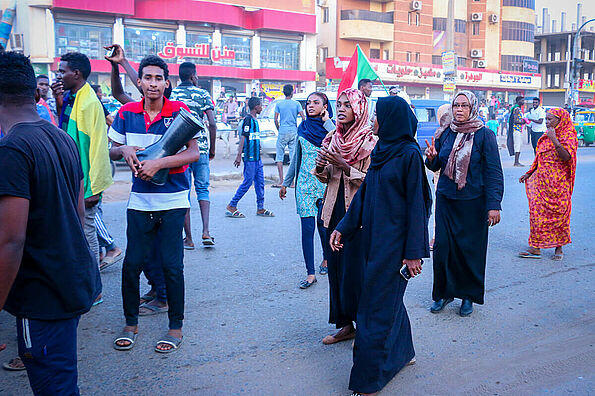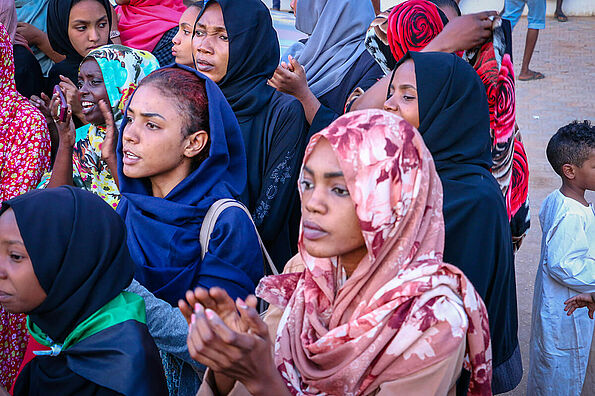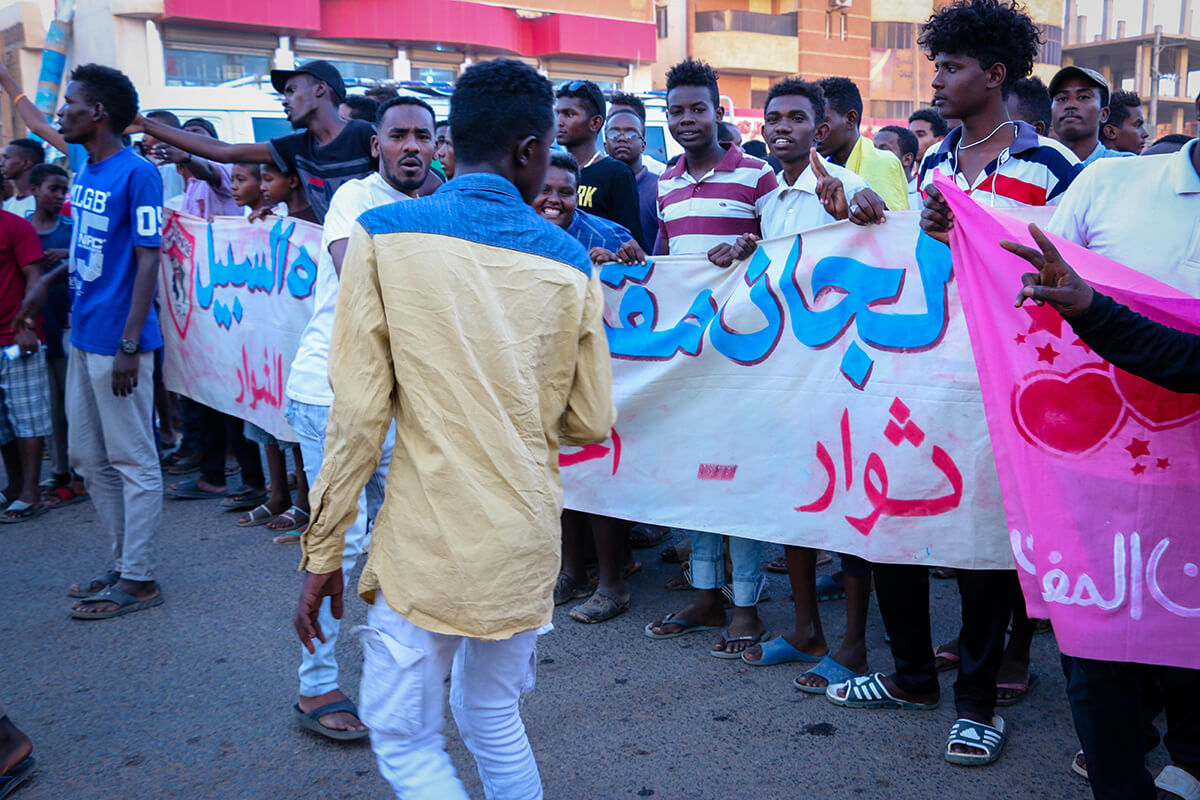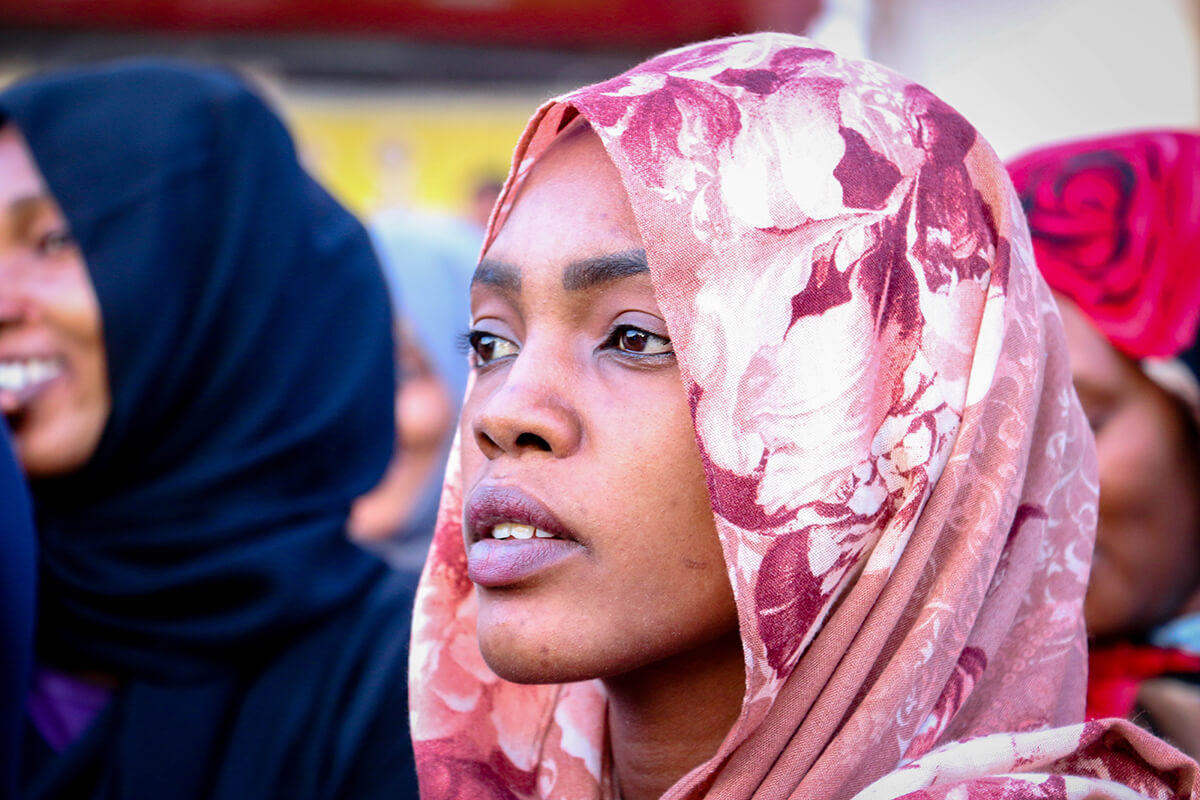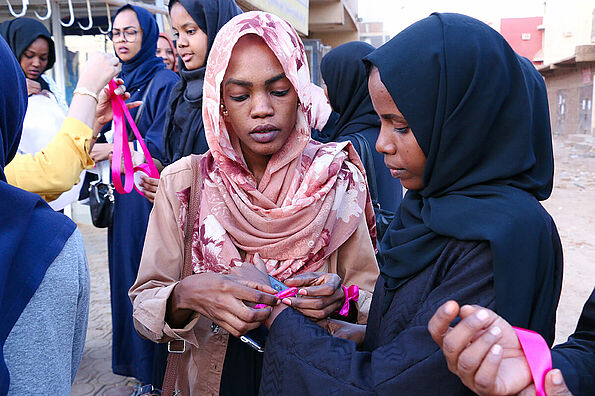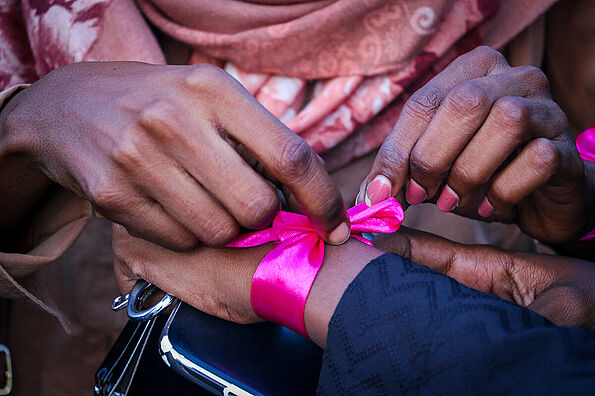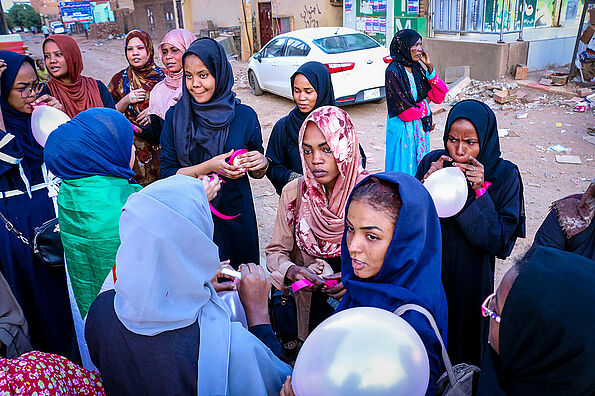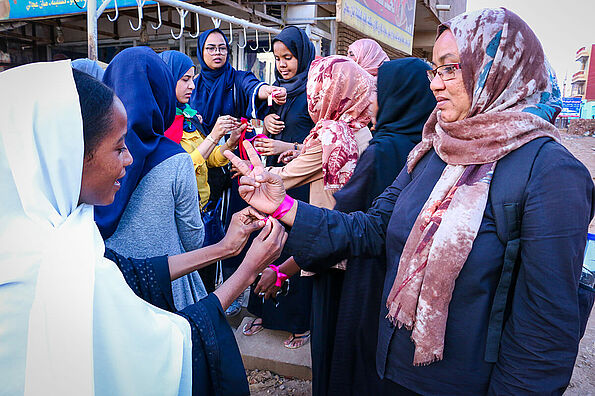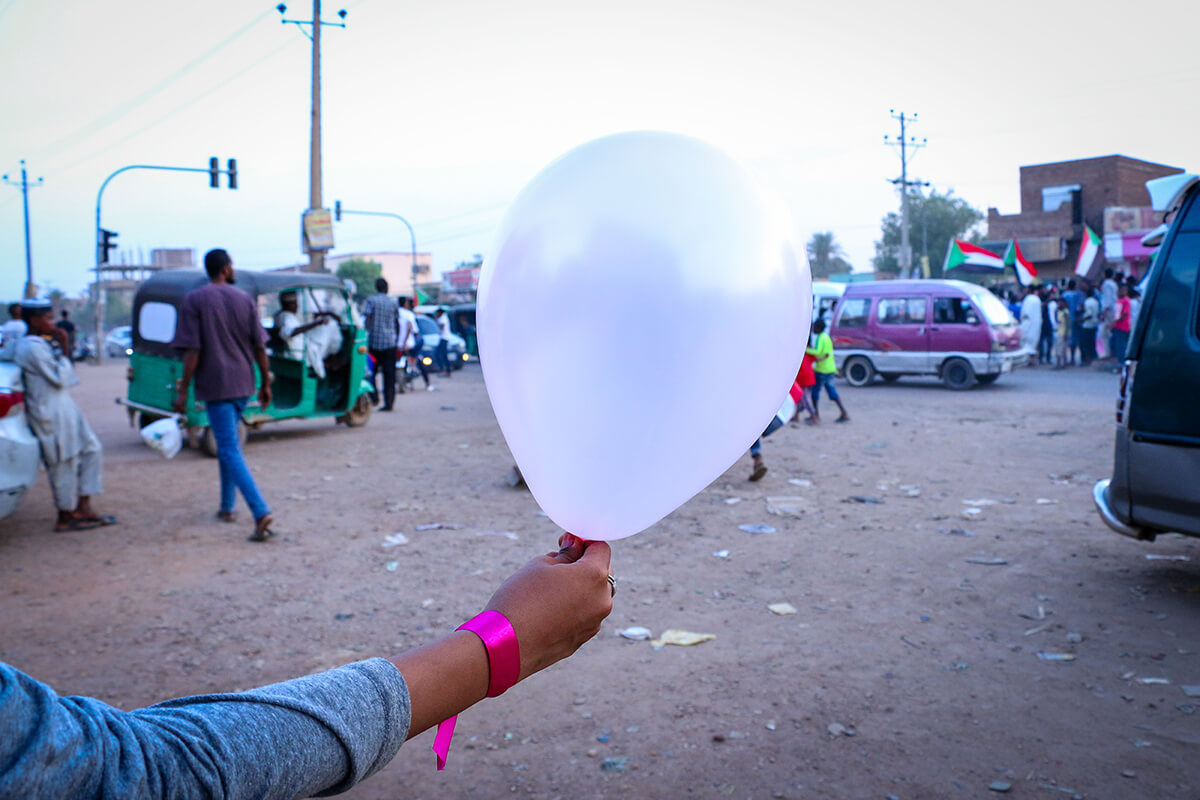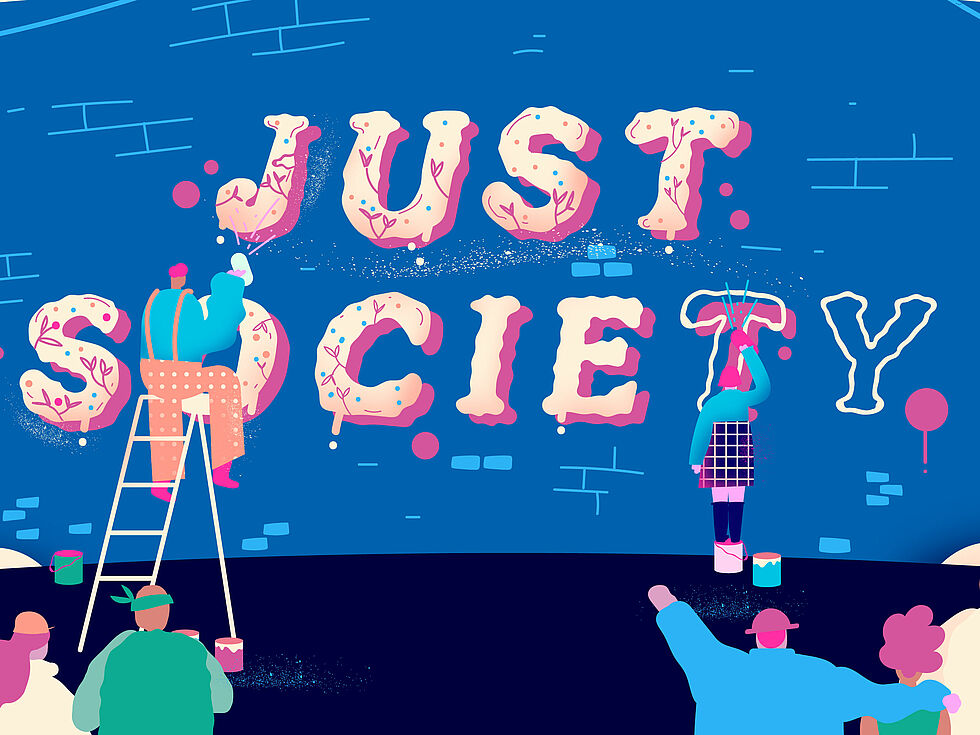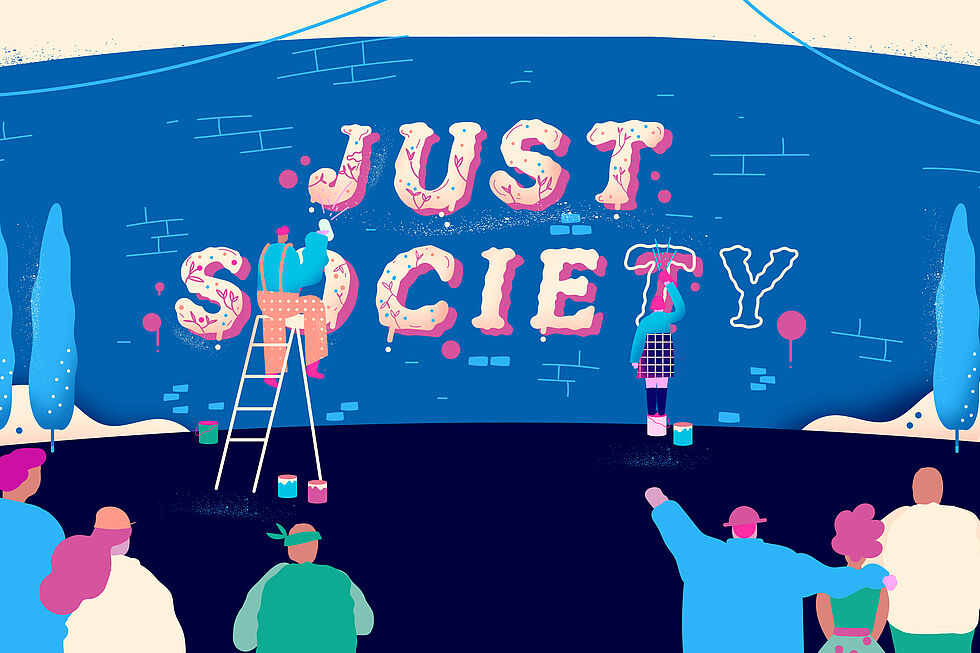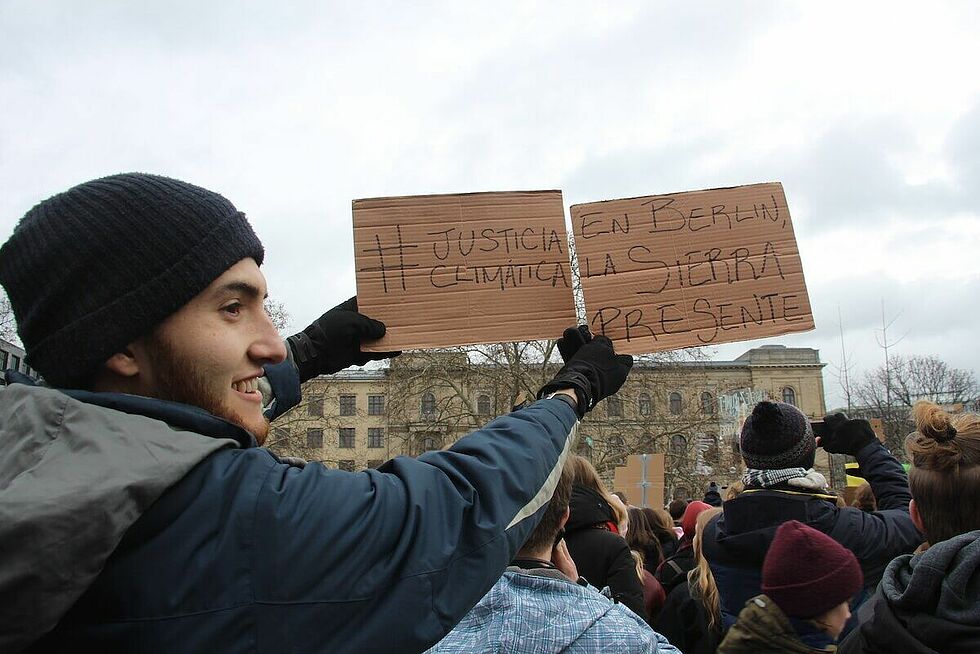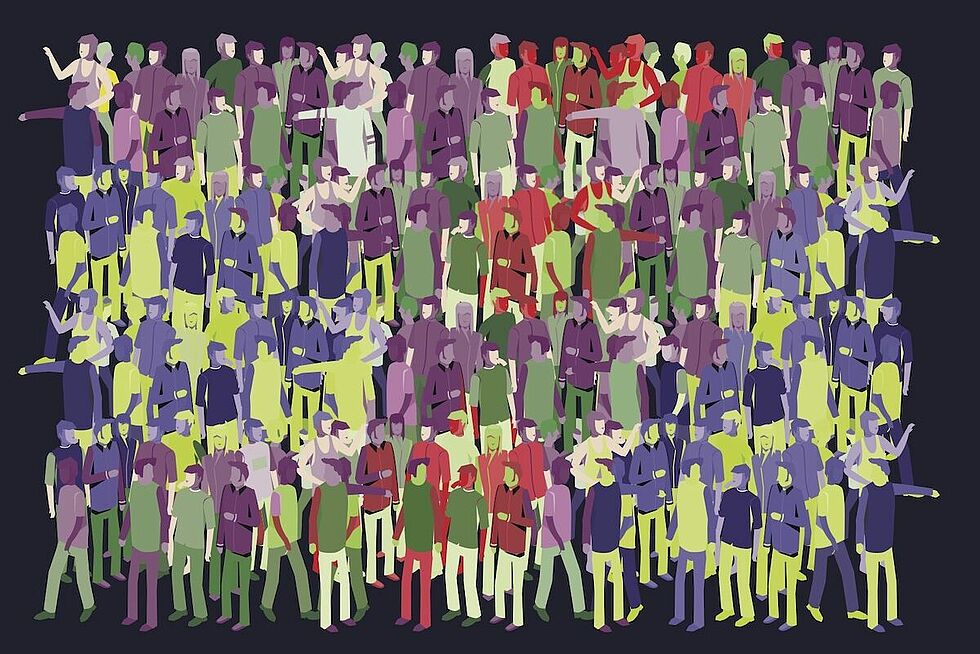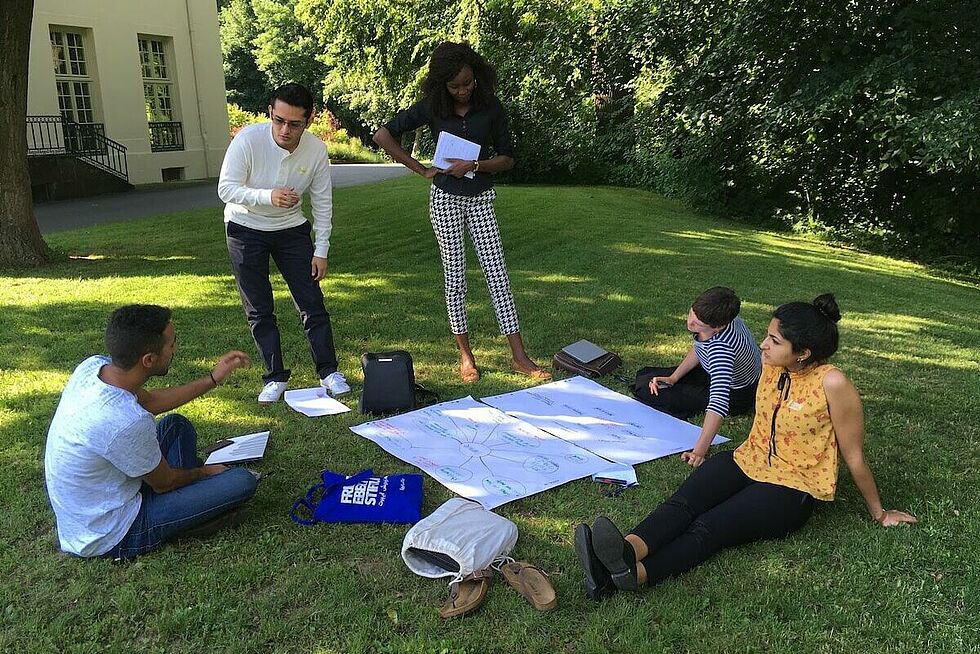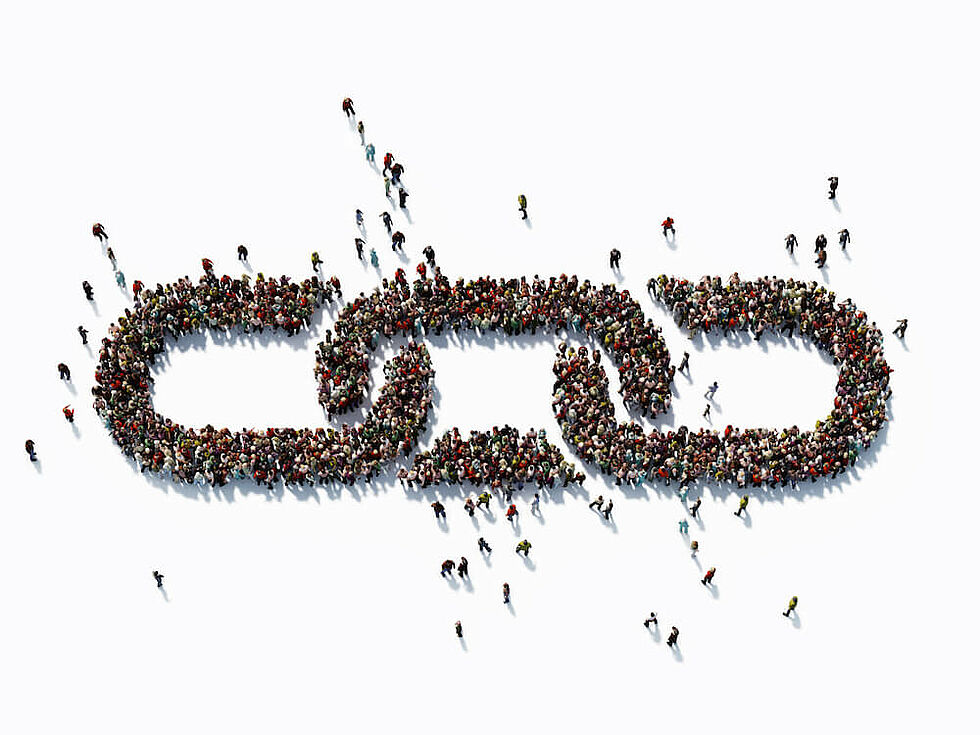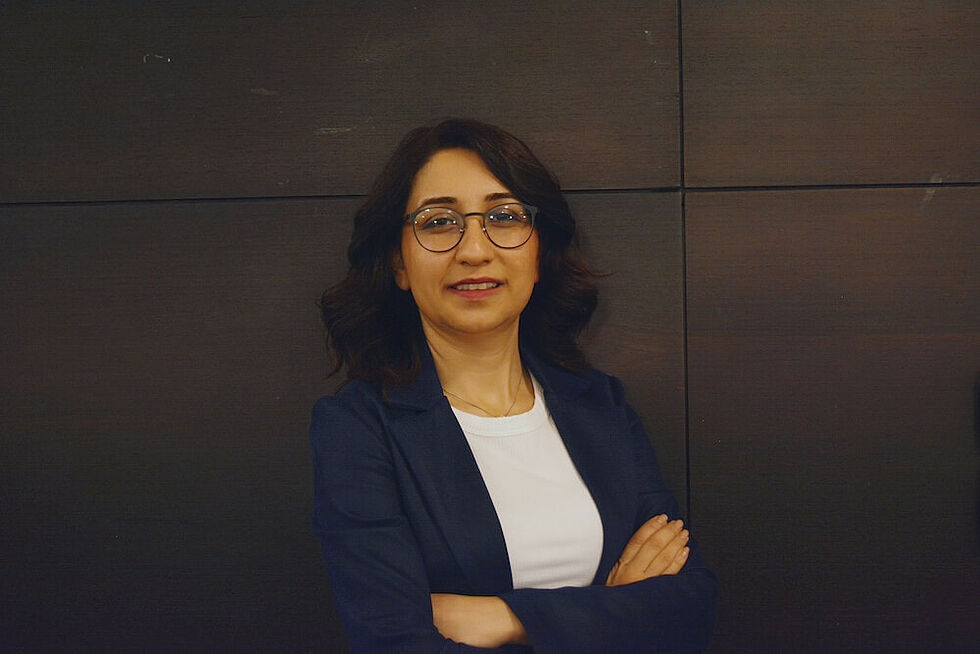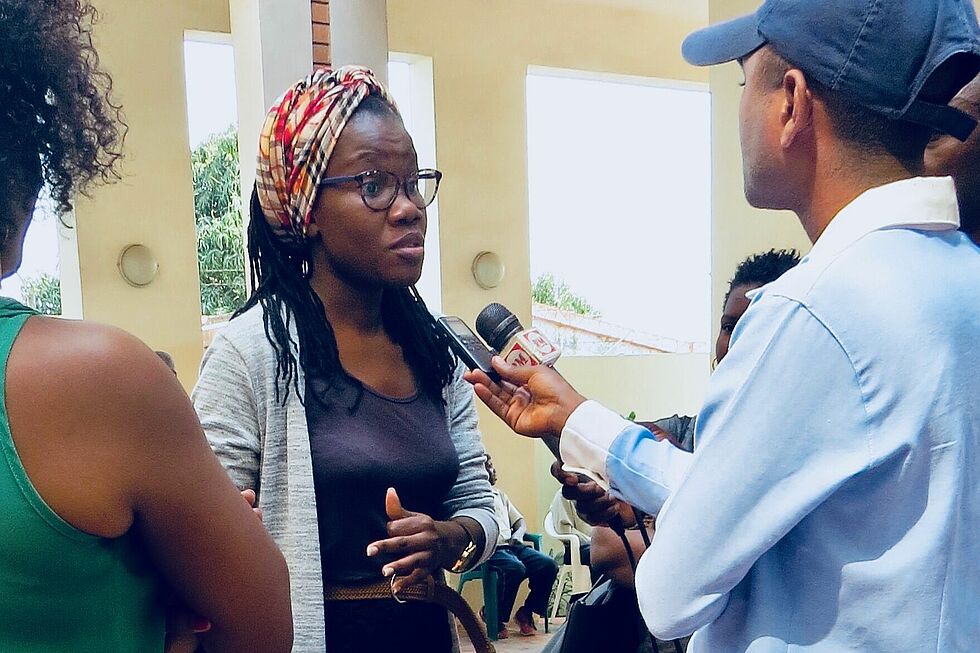Pink for Kandaka
Hundreds of protestors were killed and many women raped by militia members of the Rapid Support Forces—backed by the government—as part of a crackdown for their role supporting the nationwide protests in Sudan that began in December 2018 against Omar al-Bashir, then-president of the Republic of Sudan. Al-Bashir had seized power in a 1989 coup. The killings and violence against the peaceful protestors calling for the restoration of civilian government continued for months. On 3 June 2019 over 100 people were killed when a protest camp was cleared by the security forces, which had removed al-Bashir through a coup from office on 11 April 2019.
Pink for Kandaka is a campaign for solidarity among the women who survived the protest crackdown or were victims of rape. The campaign was born in the wake of the violent attacks on the peaceful protesters that continued through the ensuing days of demonstrations on the streets of Khartoum. This is the story about how the campaign started, as explained by Samah Jamous, the campaign initiator, and Jassour Abualgasim, photographer.
Sudanese women were a driving force during the months of protests that ousted former president Omar al-Bashir. “Kandaka” means queen of the old Nubian civilization. It was used as an all-encompassing name for a revolutionary woman and became the name for the women who returned for the massive protests in Sudan earlier this year.
A protest in Omdurman, near Khartoum. After their protest camp was disrupted, the young women and men stood behind banners declaring “We’re revolutionaries and we continue” and demanding a civilian government.
Samah Jamous is a young woman from Khartoum. Like many young women from the city, she joined the peaceful protests with her friends.
After the violent crackdown on the peaceful protest by the government, Samah returned to demonstrate with pink ribbons, to be worn around the wrist as a symbol of solidarity with survivors of the violence as well as rape survivors and to raise awareness about their rights and needs. The bold magenta pink generates curiosity, prompting people to ask, “What’s this campaign about?”
Samah spread the idea and her ribbons to every woman she met during the demonstrations. They, in turn, tied ribbons on other women’s hands.
The pink ribbon message is one of solidarity: “Violence against women and the use of rape as a weapon should stop! Being a victim of violence or rape is not a shame—you are not alone, we stand with you!”
Samah Jamous is an alumnus of the Friedrich-Ebert-Stiftung’s Young Leaders Programme in Sudan. For more information on the program and the work of FES in Sudan, visit the country office website, and for daily updates, follow the Facebook fan page of the FES Middle East and North Africa Department.
About FES Connect
Connecting people, in the spirit of social democracy, we source and share content in English from the German and international network of the Friedrich-Ebert-Stiftung.
